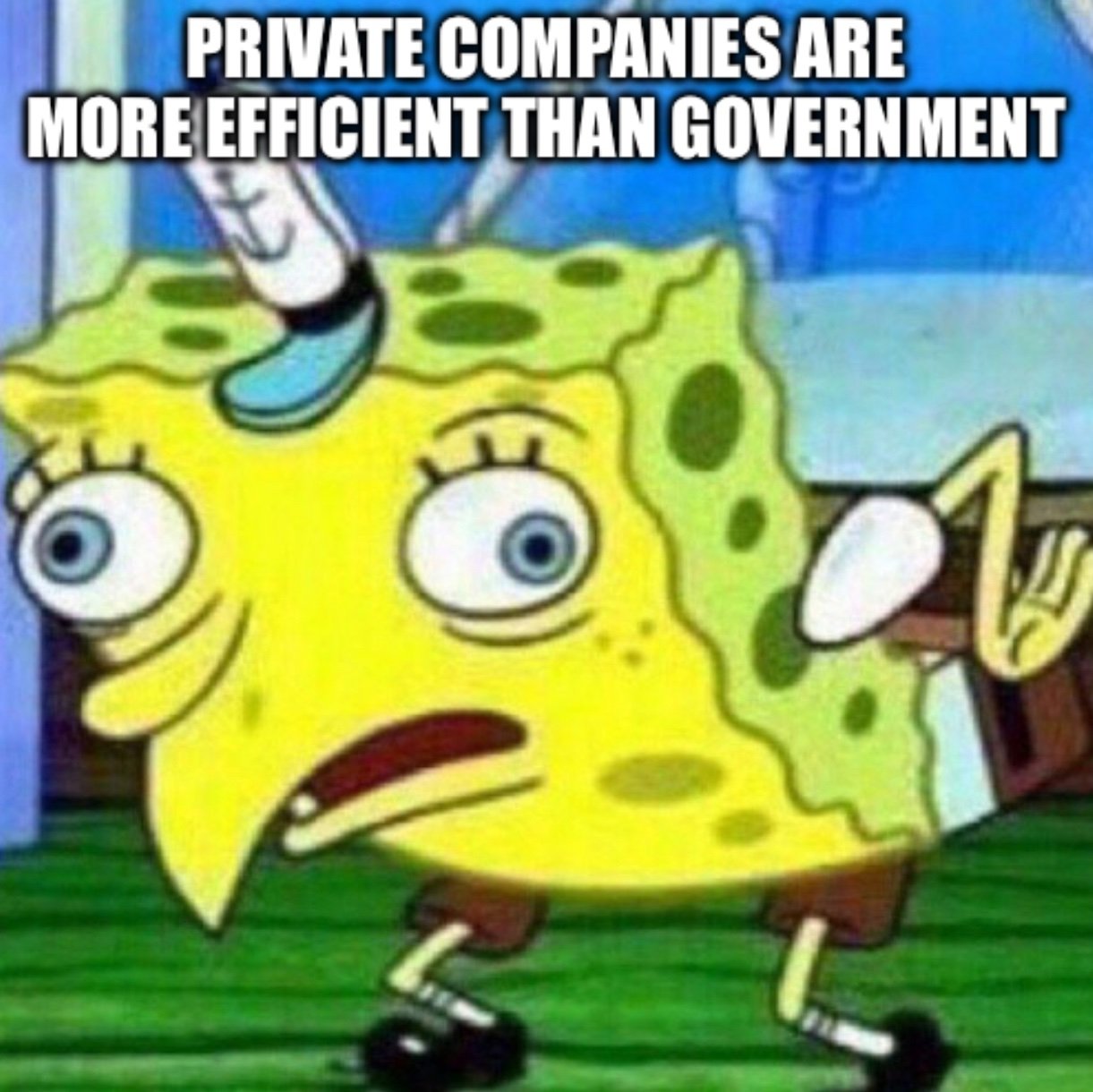this post was submitted on 03 Dec 2023
1280 points (91.5% liked)
Memes
45550 readers
2267 users here now
Rules:
- Be civil and nice.
- Try not to excessively repost, as a rule of thumb, wait at least 2 months to do it if you have to.
founded 5 years ago
MODERATORS
you are viewing a single comment's thread
view the rest of the comments
view the rest of the comments

One point here: the government doesn't pay out a large chunk of it's earnings to people who did nothing to ensure that the product or service was delivered.
They got paid a large percentage of revenue because they're shareholders.
Tell me again why taking a big pile of money from customers, who are very likely not wealthy (at least for the majority), and giving it to wealthy people, is "more efficient" than the government doing the same job and just, not doing that?
If you cut out the profit, the "business" runs more lean, no matter which way you arrange the numbers. I would argue that a more lean business model is simply more efficient. The dollars going in simply result in more output per dollar. IMO, that's efficient.
Am I taking crazy pills here?
While I agree with you completely, the argument for a counter-point would be that exactly because the private company should create as much profit for the owners as possible - it has to be as lean / efficient as possible.
That is not true for "the goverment" as profit is not an encentive to rationalize the work process.
What I find interesting are goverment agencies that operate on both levels. A great example is Ordenance Survey in UK. While they provide a public service, they also sell some of their products commercially to cover some operating costs (hiking maps etc.).
Yeah but no. It would be if the owner/shareholders weren't skimming of the top. The process may be lean but the pricing is designed to maximize and take as much as the market will bear. Which undoes the benefit the efficiency could bring to a public service.